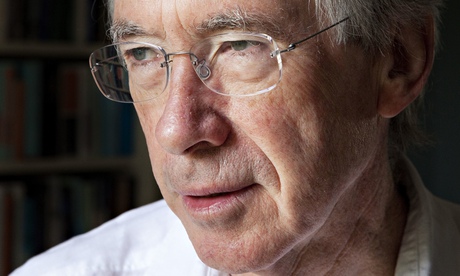
Ian McEwan, who has just published a very short new book, The Children Act, has said that "very few really long novels earn their length", and "my fingers are always twitching for a blue pencil". It's the Americans McEwan appears mainly to be blaming for this – our friends on the other side of the Atlantic "still pursue the notion of a great American novel and it has to be a real brick of an object", he says – so he may well be thinking of Donna Tartt's latest, The Goldfinch, which stretches to a whopping 880 pages in paperback. Or could it be Eleanor Catton, his fellow Booker prize winner, whose The Luminaries weighs in at 848 pages?
"Four disappointing 200-page novels is four times the disappointment of one disappointing 800-page one, I reckon," Catton says, when asked for her thoughts. "I do agree with him that length has to be earned, but that's true of every aspect of fiction, so hardly a newsflash. Plus his metaphor is out of date – nobody uses blue pencils any more, Ian!"
As for me, I'm a fan of short novels and long novels, and everything in between – as long as the writing's good. Here's my choice of the novels that might weigh as much as a brick, but to which I'd never take a blue pencil.
The Crimson Petal and the White by Michel Faber. 864 pages
Ah, Sugar. Who can fail to fall for your flaky charms? Faber's tale of a prostitute in Victorian London may be long, but it doesn't feel it. "Watch your step. Keep your wits about you; you will need them. This city I am bringing you to is vast and intricate, and you have not been here before." I wouldn't cut a word; and this is probably the book I've pressed most upon friends …
The Blind Assassin by Margaret Atwood. 656 pages
… Unless that's The Blind Assassin – my favourite Atwood, among tough competition. I don't know if I prefer the story, or the story-within-a-story of Laura Chase's novel, or the planet Zycron bits, but blue pencils: stay away.
A Dance with Dragons by George RR Martin. 1016 pages
After A Feast For Crows followed all the characters in A Song of Ice and Fire that we didn't really care about much, thank God for A Dance With Dragons, when we finally got to catch up with Tyrion, Dany and Bran. Dragons! Intrigue! Although perhaps Martin's novels should really be considered as one, daunting, 5,000-odd page odyssey …
The Stand by Stephen King. 1,200 pages
King has published two versions of his addictive slice of post-apocalyptic horror: a "complete and uncut" version, which stretches beyond a thousand pages and was released in 1990, and the original 1978 edition, which is no longer in print. Writing in the preface to the longer version, King said: "I would not offer it if I myself didn't think those portions which were dropped from the original manuscript made the story a richer one." He's ready for the blue pencil to come out, however: "It was a long novel to begin with, and this expanded version will be regarded by some – perhaps many – as an act of indulgence by an author whose works have been successful enough to allow it." I love it; I think The Stand is one of King's best, and the more, the better. No cuts, please.
Gone with the Wind by Margaret Mitchell, 992 pages
Because if you love the film, the novel is so much better and deeper and broader, and because Scarlett O'Hara is the best of flawed heroines.
The Bone Clocks by David Mitchell. 608 pages
Because I've just read it, and think it's his best yet, because it's only been out for a few hours, so now you can read it too.
What would you add?

